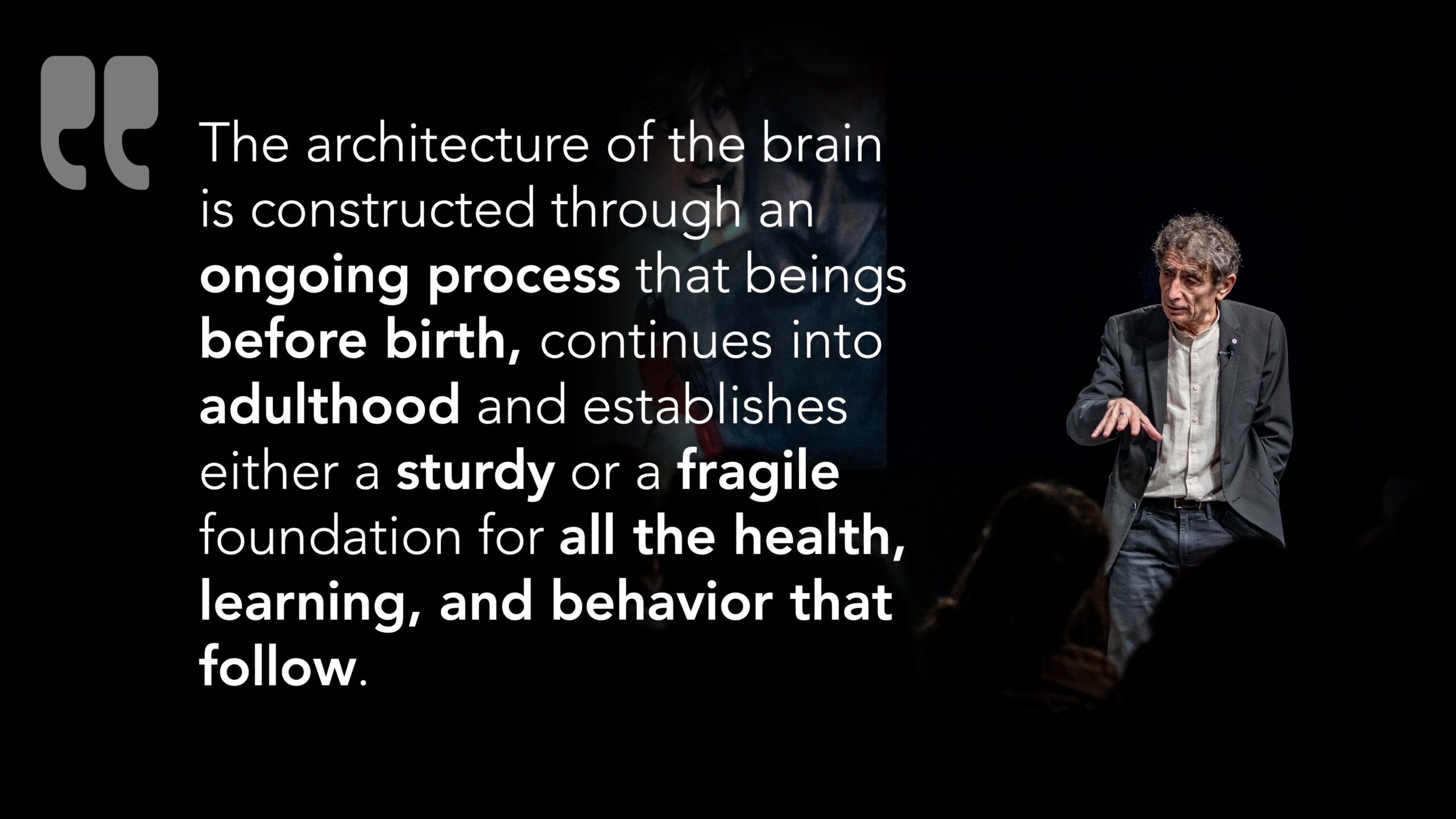Addiction: A Disease or a Developmental Problem?

Much of what you read or learn about addiction will tell you it is a disease. Gabor’s decades of experience and careful study of the research shows otherwise. Now… to be clear, saying it isn’t a disease does not mean it’s a choice. It isn’t. Nor does it mean it is difficult to treat and overcome. Anyone who has struggled to overcome an addiction knows how difficult it is.
So the prevailing view has been that it is genetic. It certainly looks that way; addiction is almost always seen to occur in families, passed down from parent to child. But here’s the problem with that: Genes don’t change very quickly, certainly not in one or two generations. And the incidence of addiction, especially to opiates, has skyrocketed in this country in the past 20 years. Way, way too quickly for it to be genetic.
As for the “disease” idea, well… addiction is typically described as ‘chronic, progressive, and fatal if left unchecked.’ But that isn’t actually true. It is not the addiction itself that is progressive and fatal. It is typically the impact of the drug that goes hand-in-hand with the addiction that causes the progression and mortality. For example, when we look at video game addiction, or porn addiction, or even marijuana addiction (which is becoming an increasing problem), we typically don’t hear of people dying from those. There’s no inherent biological degenerative pattern from the addiction itself. The degeneration happens as a result of the drug or behavior that results from the addiction.
So what if, rather than a disease, addiction is instead a disorder? A dysfunction in the brain, that originates as a combination of biology, psychological factors, and social factors? This is a whole lot more consistent with what we know about addiction. The following section explains, more sensibly than the genetic explanation, why it is handed down through families.
This section on brain neurochemistry is perhaps the most complex part of understanding Gabor’s work. Taking time to help clients understand it in the most basic terms can be very empowering for them. It will help clients realize that their cravings and addictive behaviors are not their fault, but a result of how their brains were wired early in life.
It is worthwhile to remind clients that even though the way their brains developed is directly related to the experiences they had in childhood, this is not the parents’ fault. The way our parents raised us is a direct result of what they learned when they were growing up. The same is true of our parents’ capacity to engage with us.
